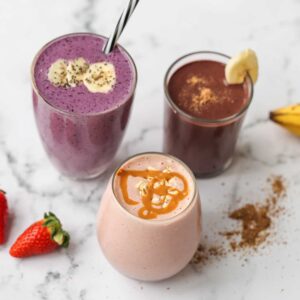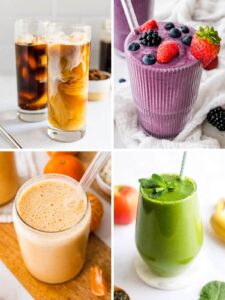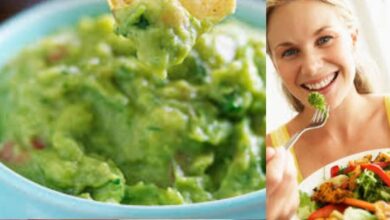Your ‘Healthy’ Smoothie Has More Sugar Than a Coke
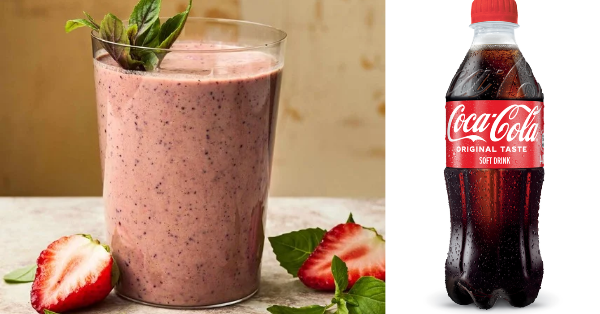
Your ‘Healthy’ Smoothie Has More Sugar Than a Coke – We’ve all been there: after a workout, craving something refreshing and nutritious, we grab a smoothie, thinking it’s the healthier choice. But what if I told you that your so-called “healthy” smoothie might be packing more sugar than a can of Coke? It’s a startling revelation, but one that’s backed by science and consumer research. Let’s dive into the details and uncover the truth behind this surprising comparison.
The Hidden Sugar in Smoothie
Smoothies are often marketed as wholesome, nutrient-packed beverages. They’re loaded with fruits, vegetables, and sometimes even superfoods like chia seeds or spirulina. However, the process of blending fruits breaks down their fiber, releasing sugars that are quickly absorbed into the bloodstream. This rapid sugar absorption can lead to spikes in blood sugar levels, similar to the effects of drinking sugary sodas.
A study conducted by the consumer group Which? in the UK analyzed 52 smoothies from leading brands and major supermarkets. The findings were eye-opening: nearly half of these smoothies contained over 30 grams of sugar per 250ml serving, which is equivalent to six teaspoons of sugar. To put this into perspective, a 250ml bottle of Coca-Cola contains approximately 26.5 grams of sugar, or about 5.5 teaspoons. This means that many smoothies have more sugar than a bottle of Coke .
What’s Really in That Smoothie?
So, what’s contributing to the high sugar content in smoothies? The answer lies in the ingredients and preparation methods. Many commercially available smoothies are made from fruit concentrates, syrups, or pre-packaged fruit purees, all of which are high in sugar. Additionally, some smoothies include added sweeteners like honey, agave syrup, or cane sugar to enhance flavor.
Even smoothies made from whole fruits can be sugar-heavy. For instance, a smoothie made with multiple bananas, mangoes, and pineapples can quickly accumulate a significant amount of sugar. While these sugars are naturally occurring, they are still sugars that can impact your health when consumed in excess.
The Health Implications
Consuming high amounts of sugar, regardless of its source, can have detrimental effects on health. Excessive sugar intake has been linked to various health issues, including:
Weight Gain: High sugar consumption can lead to an increase in calorie intake, contributing to weight gain and obesity.
Type 2 Diabetes: Diets high in sugar can lead to insulin resistance, a precursor to type 2 diabetes.
Heart Disease: Excessive sugar intake has been associated with an increased risk of heart disease.
Dental Problems: Sugar feeds harmful bacteria in the mouth, leading to tooth decay and gum disease.
The World Health Organization recommends that no more than 10% of total daily calories come from free sugars, with a further reduction to below 5% for additional health benefits. For an adult with a normal body mass index, this equates to roughly 25 grams (about 6 teaspoons) of sugar per day .
Read: 80% of Heart Attacks Are Preventable
Comparing Smoothies and Sodas
To better understand the sugar content in smoothies versus sodas, let’s look at some examples:
Smoothie King’s Caribbean Way (20 oz): Contains 98 grams of sugar, including 50 grams of added sugar. This is more than double the sugar content of two cans of Coke .
These comparisons highlight that not all smoothies are created equal, and some can be as sugary, if not more so, than sodas.
Making Healthier Choices
While smoothies can be part of a healthy diet, it’s essential to be mindful of their sugar content. Here are some tips to help you make healthier smoothie choices:
Opt for Whole Fruits: Use whole fruits instead of fruit juices or concentrates to retain fiber and reduce sugar content.
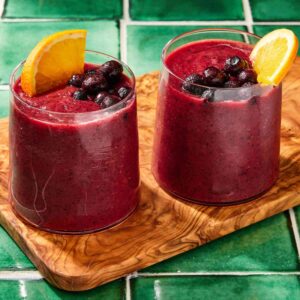
Limit Added Sweeteners: Avoid adding extra sugars like honey, agave, or syrups. If you need sweetness, rely on the natural sugars from the fruits.
Include Vegetables: Add vegetables like spinach, kale, or cucumber to boost nutrients without adding significant sugar.
Watch Portion Sizes: Be mindful of the quantity you’re consuming. A small smoothie can be a healthy snack, but large servings can lead to excessive sugar intake.
Read Labels: If purchasing pre-made smoothies, check the nutrition labels for sugar content and ingredients.
By making these adjustments, you can enjoy smoothies as a nutritious part of your diet without overloading on sugar.
Conclusion
The next time you’re reaching for a smoothie, remember that not all smoothies are created equal. While they can be a healthy option, many commercially available smoothies contain high amounts of sugar, sometimes exceeding that of a can of Coke.
By being informed and making mindful choices, you can enjoy the benefits of smoothies without compromising your health.
Always consider the ingredients, portion sizes, and overall nutritional content to ensure that your smoothie is truly a healthy choice.

